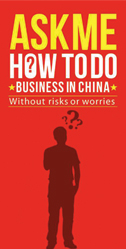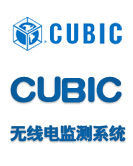More Airlines Worldwide Choosing Revenue-Based Methods to Serve Customers
Seemingly unstoppable fuel price increases forced airlines to allow the genie of a la carte fees to escape from its bottle. Even though oil has returned to more normal price levels, airline management can’t deny the financial magic produced by ancillary revenue. Many legacy airlines made dramatic changes by implementing fees for services that once were included in the price of a ticket. The relatively high level of passenger acceptance - - or at least lack of a consumer revolt - - surprised carrier management teams. This genie is not going back into the bottle; airlines are changing business models to emphasize customers who are willing to pay for perks.
There is ample evidence that airline marketing initiatives are becoming more revenue-aware. Rather than provide free amenities, airlines have learned to “ask for the sale” at every opportunity. A la carte fees are quickly becoming associated with checked baggage, call centre support, and onboard meals. IdeaWorks applied its ancillary revenue expertise, and its contact with airline clients worldwide, to anticipate the growing effect these changes will have on the air travel experience: 1. Baggage charges, and other a la carte fees will spread to international markets, to include the transatlantic, as more airlines become comfortable with the change. 2. Food-for-purchase programs will gain acceptance on longer haul flights, but will begin as offers to upgrade the dining experience. The conversion to a new revenue-aware philosophy has been the most rapid for airline consumers in Europe and the United States. While a la carte pricing was largely conceived by Europe’s low cost airline industry, the world’s airlines have been avidly watching recent events in the U.S. market. The revenue success realized in these two markets suggests the ancillary revenue movement is about to rapidly spread to the rest of the airline world. More A la Carte Fees Predicted Worldwide The gradual unbundling of the air travel experience, and the growing prevalence of a la carte choices, demonstrates the growth of the ancillary revenue movement. Fees associated with checked baggage were once largely used by low cost carriers in Europe such as Ryanair and easyJet. Now these fees have also been adopted by the three largest names in the U.S. airline industry - - American, Delta, and United. Of course, all of this follows an already clear trend by many airlines to charge a flat fee for bookings made via airline call centers. The fees associated with checked baggage in the U.S. market have been a revenue success story. American Airlines generated $70 million (1) in extra revenue during the 3rd quarter of 2008 from the fees for a first piece of checked baggage. United estimates it will realize $300 million (2) in additional revenue during 2009 from its new baggage fees. Delta was initially reluctant to initiate a fee for the first piece of baggage. However, it will join other U.S. major airlines on December 5, 2008 with a $15 fee for the first piece. Delta only considered this after its chief operating officer observed, “The increase in bags being carried on board Delta aircraft this year tells us that customers are not differentiating Delta as the only major airline not charging for a first checked bag.” (3) He went on to observe that these fees have been “broadly accepted in the marketplace.” Europe’s major airlines, and legacy airlines throughout the world, are likely to greet these events with enthusiasm. Lufthansa, SAS, Air France/KLM, and others, are most likely to copy the baggage fees already implemented by low cost carriers on shorter haul flights within Europe. Transatlantic markets represent a future frontier that will require one European or American carrier to make a bold move by being the first to charge fees. The revenue potential of baggage fees suggests it’s an inevitable event. Thus emboldened, legacy airlines will likely adopt the other a la carte fees already charged by low cost airlines. Some of this activity has already occurred. Delta recently matched Northwest’s existing practice of offering coach customers the ability to purchase a better seat assignment for $5 to $25.(4) Most surprising is the recent announcement by one of the world’s preeminent airline brands: Singapore Airlines just announced a fee of US$50 per sector to reserve exit row seats in its economy class.(5) Major airlines will likely show some restraint now that the price of fuel has fallen to more acceptable levels. Caution and thoughtfulness are warranted. Employees, the media, and consumers need to understand and accept these dramatic changes . . . most airlines haven’t dedicated sufficient resources to ensure successful product introductions. Food-For-Purchase and Long Distance Travel Airline food holds a special position in our travel culture. It has been the subject of derision by comedians, reporters, and the general public. But airline management should be wary of any abrupt changes to seemingly minor elements such as free soft drinks, coffee, and peanuts. And as United Airlines recently discovered, the world is not yet ready for the sale of food in economy class on flights between North America and Europe . . . or is it? United probably regrets the August 20, 2008 news that it was planning to test a buy-on-board concept on transatlantic flights operating at its Washington Dulles hub during the 4th quarter of 2008. (6) Within 13 very unlucky days, the airline said it was compelled by overwhelming public feedback to drop its test plans.(7) Surprisingly, food-for-purchase on long distance flights is already an accepted fact for a number of airlines throughout the world. AirAsiaX and Jetstar in the Asia-Pacific market already provide food-for-purchase options on long distance flights. Air Baltic, which operates 5+ hour flights from its Riga hub, has also replaced complimentary food with a buy-on-board café. All three airlines allow customers to pre-order meals, often at a discount, to guarantee the availability of a hot entrée. Air Berlin takes a unique approach with its Sansibar gourmet meals. The airline continues to offer complimentary snacks, meals, and beverages to economy passengers. These customers may “upgrade” their dining experience by ordering a specific gourmet entrée before departure. Within Europe, the buy-on-board path has also been blazed by Scandinavian Airlines. The carrier offers a basic Economy product on short and medium distance routes that excludes complimentary food and beverages. Consumers may choose to upgrade to Economy Extra, which provides a 3-course meal box and drinks, along with other amenities. But the biggest news might be the comments made by Willie Walsh, the CEO of British Airways, at the recent World Low Cost Airlines Conference in London. “I think we are only scratching the surface at BA regarding ancillary services.”(8) The article also reports British Airways is “even investigating charging passengers extra for the option of an ’upgraded’ in-flight meal.” While specific routes were not mentioned, the opportunity to purchase a better meal would probably have its greatest appeal on longer flights, such as transatlantic markets. United’s aborted buy-on-board test won’t be the last attempt to bring a la carte fees to long-haul flights. Perhaps Ryanair, in its plans to launch low cost flights on transatlantic routes, will nudge others to consider food-for-purchase programs. Or, maybe legacy airlines will take a more careful approach by adding a meal upgrade alternative as a first tentative step. About IdeaWorks: IdeaWorks was founded in 1996 as a consulting organization building revenue through innovation in product, partnership and marketing. Its international client list includes the airline, hotel, marine, railroad, and consumer product industries. The firm is a leading expert on creating ancillary revenue opportunities for airlines. IdeaWorks has worked with airlines on ancillary revenue projects in Europe, the United States, and South America. The consulting firm has helped create frequent flier programs and develop co-branded credit cards in the USA, Europe, and South America. Learn more at: IdeaWorksCompany.com New Consulting Package for Airlines: IdeaWorks presents a fixed-price solution for airlines seeking to build ancillary revenue. This consulting package provides a week of on-site consulting services that supports three primary ancillary revenue areas: 1) commission-based products at the website, 2) travel-related a la carte services, and 3) onboard a la carte features. Visit the website Clients & Projects area of the website at IdeaWorksCompany.com. Contact the Author of this Report: Jay Sorensen, President, The IdeaWorks Company email: Jay @ IdeaWorksCompany.com, direct telephone: 01-414-961-1939 USA
Copyright © 2012 by Uniworld, LLC All rights reserved
To request permission to use content,Email China Civil Aviation







